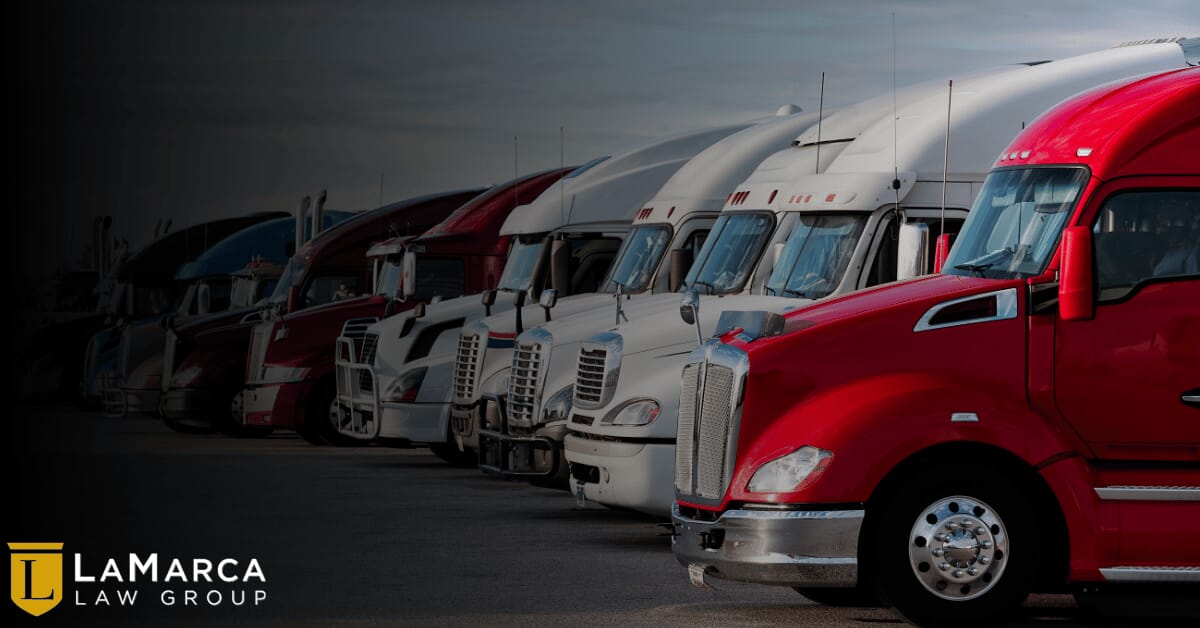
The trucking industry plays a crucial role in our economy, transporting goods across the country and keeping businesses running smoothly. However, with this important role comes a great responsibility to ensure the safety of both truck drivers and other road users. In recent years, there have been growing concerns about the lack of regulation in the trucking industry, leading to an increase in accidents and fatalities on the road. In this post, we will explore why the trucking industry needs more regulation and how lawyers can play a key role in advocating for safer practices and holding companies accountable for their actions. Join us as we delve into this important issue and discuss how we can work together to make our roads safer for everyone.
Overview of the Trucking Industry
The Trucking Industry: A Key Player in Transportation
The trucking industry is the backbone of transportation, responsible for moving goods across the country efficiently and reliably. With a vast network of trucks and drivers, the industry plays a crucial role in keeping supply chains running smoothly and delivering products to consumers. From small local deliveries to long-haul journeys, trucking companies are essential for businesses of all sizes.
Importance of Trucking Companies
Trucking companies not only facilitate the movement of goods but also contribute significantly to the economy by creating jobs and supporting various industries. Their operations are essential for businesses to thrive and for consumers to access the products they need. Understanding the inner workings of the trucking industry is key to appreciating its impact on our daily lives.
Current Regulations in the Trucking Industry
Regulations play a crucial role in ensuring the safety, efficiency, and fairness of the trucking industry. These rules govern various aspects of trucking operations, including driver qualifications, vehicle maintenance, hours of service, and cargo securement. The Department of Transportation (DOT) and the Federal Motor Carrier Safety Administration (FMCSA) are some of the key regulatory bodies responsible for overseeing and enforcing these regulations.
Importance of Compliance
Compliance with these regulations is essential for the trucking companies to operate legally and safely. Non-compliance can result in fines, penalties, and even suspension of operations. By adhering to the regulations, companies can ensure the well-being of their drivers, protect other road users, and maintain the integrity of the industry as a whole.
Challenges Faced by the Trucking Industry

The trucking industry faces a myriad of challenges that impact its operations and overall efficiency. One of the major challenges is the ongoing driver shortage, which has been a persistent issue for years. This shortage is often attributed to factors such as an aging workforce, demanding job requirements, and a lack of interest among younger generations in pursuing a career in trucking. As a result, companies struggle to find qualified and experienced drivers to meet the growing demand for transportation services.
Additionally, rising fuel costs pose a significant challenge to the trucking industry. Fluctuating fuel prices can significantly impact operating costs for trucking companies, leading to decreased profit margins and potential financial instability. In an industry where fuel is one of the largest expenses, finding ways to mitigate the impact of volatile fuel prices is crucial for the long-term sustainability of trucking businesses. These challenges highlight the need for innovative solutions and strategic planning to ensure the continued success of the trucking industry.
The Role of Lawyers in Regulating the Trucking Industry
Lawyers play a critical role in regulating the trucking industry by ensuring that companies comply with all relevant laws and regulations. They provide legal counsel to trucking companies on a wide range of issues, including safety standards, employment practices, and compliance with environmental regulations. Lawyers also represent trucking companies in legal proceedings, such as lawsuits filed by employees, customers, or regulatory agencies.
Additionally, lawyers help draft contracts and agreements between trucking companies and other parties to ensure that all parties’ rights and responsibilities are clearly defined. They also stay up-to-date on changes in trucking laws and regulations to help their clients navigate the complex legal landscape of the industry. Overall, lawyers play a crucial role in helping to uphold the integrity and safety of the trucking industry through sound legal advice and representation.
Benefits of Increased Regulation in the Trucking Industry

Regulation in the trucking industry plays a crucial role in ensuring safety on the roads, protecting the environment, and promoting fair competition among companies. One of the key benefits of increased regulation is the enhancement of safety standards. By imposing strict rules on driver qualifications, vehicle maintenance, and maximum driving hours, regulations help prevent accidents and save lives. Moreover, regulations regarding environmental standards contribute to reducing pollution and minimizing the industry’s impact on climate change.
Impact on Fair Competition
Another significant benefit of increased regulation in the trucking industry is the promotion of fair competition. Regulations such as compliance with labor laws, fair pricing practices, and anti-monopoly measures help level the playing field for companies of all sizes. This ensures that smaller businesses have a chance to thrive alongside larger corporations, fostering innovation and diversity in the industry. Ultimately, increased regulation leads to a more sustainable and ethical trucking sector, benefiting both businesses and society as a whole.
Legal Strategies for Improving Trucking Industry Regulation
Improving regulation in the trucking industry is crucial for ensuring safety on the roads and protecting the rights of all involved parties. One effective legal strategy is to advocate for stricter enforcement of existing regulations. By holding companies accountable for compliance, we can deter unsafe practices and promote a culture of responsibility within the industry.
Additionally, promoting collaboration between regulatory bodies, industry stakeholders, and legal professionals can lead to more comprehensive and effective regulation. By working together to identify weaknesses in the current system, we can develop innovative solutions that address the evolving challenges faced by the trucking industry.